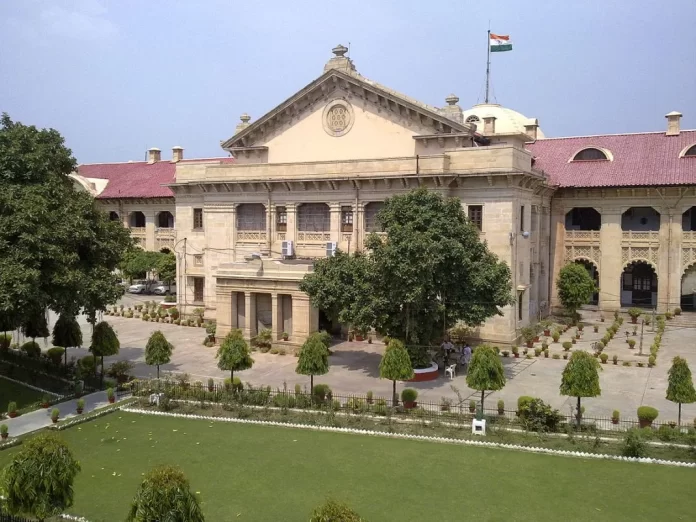The Lucknow Bench of the Allahabad High Court while rejecting an application observed that an offence under Section 506 IPC if committed in the State of Uttar Pradesh is a cognizable offence.
A Single Bench of Justice Subhash Vidyarthi passed this order while hearing an application under section 482 filed by Brij Mohan.
By means of the applicant filed under Section 482 Cr.P.C, the applicant Brij Mohan has challenged the validity of the charge sheet dated 05.06.2023 under Sections 323, 504, 506 I.P.C arising out of Case Police Station Lalganj, District Raebareli, and the order dated 13.12.2023 passed by the Additional Chief Judicial Magistrate, Raebareli in Case, taking cognizance of the aforesaid offences.
The submission of the counsel for the applicant is that all the offences are non-cognizable and, therefore, neither an F.I.R could be lodged regarding the offence under Section 323, 504, 506 nor could a charge sheet have been submitted nor could the court have taken cognizance of the offence and have summoned the applicant to face the trial of a State Case and only a complaint could have been entertained by the Court in respect of non-cognizable offences.
The Court held that,
The Offences under Section 323, 504 I.P.C are undisputedly non cognizable offences. The first Schedule appended to the Criminal Procedure Code, 1973 mentions the offence under Section 506 also to be a non-cognizable offence.
Section 10 of the Criminal Law Amendment Act, 1932 authorised the State Government to make certain non-cognizable offences under Code of Criminal Procedure, 1898, cognizable by notification, but this power could be exercised in respect of the Code of Criminal Procedure, 1898 only and after its repeal by virtue of Section 484 of Criminal Procedure Code, 1973, the power ceased to exist.
Section 10 of the Act of 1932 is violative of Article 14 of the Constitution, inasmuch as it is bereft of any guideline in respect of an area to be specified in the notification.
The Full Bench rejected both the contentions and held that Section 10 of the Act of 1932 and Notification dated July 31, 1989 are valid.
The counsel for the applicant has submitted that the judgment of the Division Bench in Virendra Singh (supra) has been followed in the order dated 05.07.2019 passed by a coordinate Bench of the Court in Hakim Singh Vs State of U.P and another.
The judgment in the case of Virendra Singh (Supra) was passed by a Division Bench without taking into consideration the earlier Full Bench judgment in the case of Mata Sewak Upadhyay, which was binding on the Division Bench.
“Moreover, the aforesaid decision of the Full Bench in Mata Sewak Upadhyay (Supra) has been approved by the Supreme Court in Aires Rodrigues v Vishwajeet P Rane, (2017) 11 SCC 62. The question in that case was regarding validity of a similar Notification issued under Section 10 of the Criminal Law Amendment Act, 1932, declaring Sections 186, 188, 189, 228, 295-A, 298, 505 or 507 of the Penal Code, 1860 when committed in the Union Territory of Goa (now State), Daman and Diu, to be cognizable and Sections 188 or 506 IPC to be non-bailable when committed, in the said territory. The contention, in support of the challenge, was that such a Notification would be repugnant to the provisions of the Code of Criminal Procedure and the State could not issue a notification in conflict with the Central legislation.
The validity of the aforesaid notification dated 31st July 1989 having been upheld by a Full Bench of the Court in Mata Sewak Upadhyay (Supra) and the Full Bench decision having been approved by the Supreme Court in Aires Rodrigues (Supra), there is no doubt that an offence under Section 506 IPC, if committed in the State of U.P is a cognizable offence.
Therefore, the submission of the Counsel for the applicant lacks merits and the same is accordingly rejected. There is no illegality in the charge sheet dated 05.06.2023 under Sections 323, 504, 506 I.P.C arising out of Case Police Station Lalganj, District Raebareli, and the order dated 13.12.2023 passed by the Additional Chief Judicial Magistrate, Raebareli in Case taking cognizance of the aforesaid offences”, the Court observed while rejecting the application.


